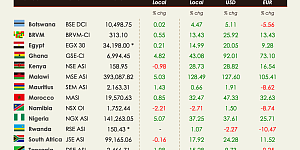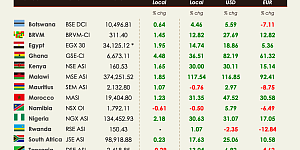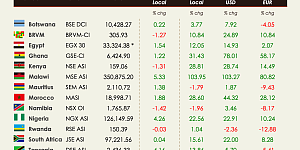It’s all about Janet Yellen… Fed Chair addressed the Economic Club of New York this week outlining a cautious approach in raising interest rates. Yellen showed a hopeful view of US economy but flagged concerns about tighter financial conditions, slower global growth and China FX policy uncertainty as being able to potentially have a negative feedback loop into the US economy. Inflation expectations were also somewhat part of her concerns. Yellen could not have made it clearer in suggesting that the Fed will keep US rates lower for longer. The U.S. Dollar Index, a gauge of the currency’s strength against a basket of rival currencies, fell 1.6% this week after Fed Chair’s comments. Fed Chair’s speech almost led to believe that US economic data would disappoint. Well they did not… US March job creation and hourly wage both came up higher than consensus expectations. Data were good but not good enough to create a fear of a tightening Fed policy on the part of investors which supports the case for African markets at least in the short-term. Yellen’s statement triggered dollar weakness, gains in commodities and was enough to drive investors to go long emerging market assets as valuations are attractive at this level. In parallel, oil prices fell about 4% after Saudi Arabia's deputy crown prince suggested that the kingdom would freeze output only if the move is mirrored by Iran and other major oil producers.
JSE ASI decreased by 1.41%. Despite political crisis threatening the country recently, the rand went back to levels last seen in December 2015 and marked its first quarterly gain against the dollar since 2012 essentially thanks to Yellen. The country’s top court ruling Thursday that Zuma had violated the constitution as well as a smaller deficit further supported the currency. Investors seem to have chosen to applaud the country’s democratic processes and well-functioning legal system over sanctioning the verdict itself. The rand was the best performer against the dollar this week as it rose 3.9%. The excitement on the currency market did not extend to the JSE. Indeed as rand hedge companies on the JSE that earn most of their income in foreign currencies abroad, a stronger rand is no good news. Most traded sharply lower on Friday which pushed the rest of the market lower. On top of that, favourable news regarding the Chinese manufacturing sector however arranged for some support for the resources sector on the JSE, consequently the dual-listed commodity producers did not plunge as sharply as some of the other rand hedges.
Worth highlighting, the EGX30 broke the level of 7500 points this week powered by purchase of national individuals and slightly declined by 0.31% after last week’s strong performance.
All in all, despite support from Yellen’s comments, African markets performance was neither good nor bad for the last week of March. Let us see what April will bring!










































